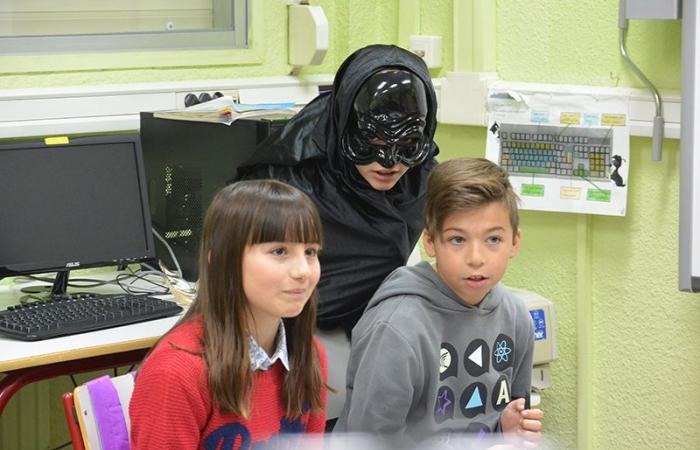
The emotional literacy program through the Theater of Consciousness for school coexistence “In Their Shoes: A Space of Active Empathy” belonging to the Theater of Consciousness Association and implemented in more than 150 Spanish schools – has been included in the most recent international report of the Organization for Economic Cooperation and Development (OECD) as a successful program in training socio-emotional skills to generate harmonious relationships and improve the well-being of students.
The report, which is called “Social and Emotional Skills for Better Lives. Findings from the OECD Survey on Social and Emotional Skills 2023”, offers a comparison between students aged 10 to 15 from OECD countries. Bulgaria, Chile, Peru, Spain, Mexico, Ukraine, Colombia, India, United Arab Emirates, Italy, Japan, Finland, China, Indonesia, Brazil and Italy participated in this edition.
This evaluation seeks to understand how these competencies differ among students with diverse sociodemographic characteristics, how they influence their life achievements, and to what extent the school and family environment impacts their development. Thus he points out that: “Younger students (10 years old) tend to show greater social and emotional skills than older students (15 years old), in particular confidence, energy and optimism.”
Within it, reference is also made to the differences between the gender function of minors, noting that “boys tend to report greater emotional regulation skills – particularly resistance to stress –, energy, confidence and sociability than girls at 15.” years, while they demonstrate greater tolerance, achievement motivation, empathy and responsibility than boys.”
It also appears within the report that students with lower emotional regulation skills – especially optimism –, energy and confidence tend to report worse well-being results; including lower life satisfaction and psychological well-being.
Boys tend to report greater emotional regulation skills, while girls demonstrate greater tolerance, achievement motivation, empathy, and responsibility.
In relation to socioeconomic factors, the study focuses on how “students in the most disadvantaged situation report lower levels in all skills compared to students with greater economic resources.” He also alludes to the fact that these are “gaps that are greater in open-minded skills – creativity, tolerance and curiosity – and those related to interaction with others – assertiveness, sociability and empathy.”
Precisely socio-emotional skills such as empathy are one of the three training axes of “In Their Shoes”, along with the identification and management of emotions, and the positive resolution of conflict. In chapter 3 of the report, entitled “Current psychological well-being”, he explains how “In Their Shoes” effectively affects this aspect.
“Students have improved their emotional literacy by learning to identify and manage their emotions, which has led to a decrease in their levels of worry and anxiety, and to feeling more confident in expressing their emotions and communicating with their classmates and teachers.” This is one of the results of the international evaluation of this program, highlighted by the OECD, and which was carried out by the University of Utrecht (Netherlands) and by experts from the Carlos III University (Madrid), with the collaboration of the INEE ( National Institute of Educational Evaluation, of the Ministry of Education and Vocational Training of Spain).
The most disadvantaged students report lower levels in all skills compared to students with greater economic resources
This emotional literacy work to improve coexistence of “En Sus Zapatos” is a reality that has been possible due to close public-private collaboration. Specifically, since 2019 it has a close collaboration of the General Subdirectorate of Innovation and Teacher Training Programs of the Community of Madrid.
The OECD report explains how “In Their Shoes” has its own theatrical methodology – called Theater of Consciousness, which stages emotions – which has reached 150,000 people since 2017, including teachers, schoolchildren (from 4 to 17 years old). . It also emphasizes its innovative cascade learning and how it is a program “internationally recognized for its important contribution in the field of socio-emotional education by entities such as the Finnish organization HundrED and the Lego Foundation.”
The OECD report also echoes her trajectory and highlights how “In Their Shoes” was created in 2017 by the anthropologist and expert in Emotional Education, Pax Dettoniwhich has already trained more than 46 teachers in the methodology, who take it to schools in Madrid, Galicia, Andalusia, Catalonia, Castilla La Mancha, Valencia, Extremadura and the Balearic Islands.





